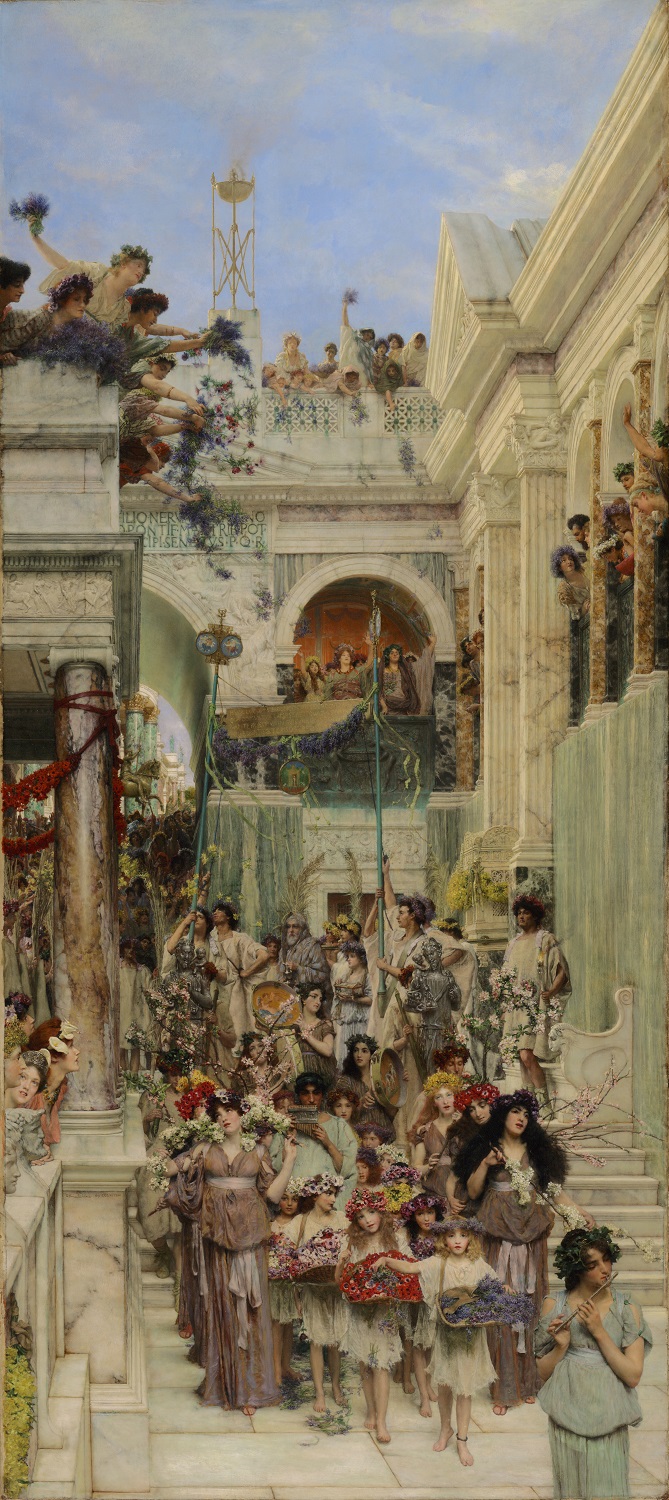
Throughout their adult life, Katharine Bradley and her niece Edith Cooper lived together as lovers and, under the pen name Michael Field, wrote jointly poetry and drama. One generally assumes that their love started in a Platonic mode when Edith was a teenager, and became sexual when she reached adulthood.
In 1889 they published Long Ago, a collection of verse inspired by the poetry of the ancient Greek poetess Sappho, some of which had been edited and translated by Henry Thornton Wharton in 1885. Each poem starts with a line in Greek by Sappho. In the book’s Preface they wrote:
Devoutly as the fiery-bosomed Greek turned in her anguish to Aphrodite, praying her to accomplish her heart’s desires, I have turned to the one woman who has dared to speak unfalteringly of the fearful mastery of love, and again and again the dumb prayer has risen from my heart—
Love, its sorrows and drama feature prominently throughout the collection. Many poems evoke quite openly feminine sexuality, in particular erotic love between women.
My first choice is a poem celebrating youth, its pleasures and exploration of love:
Αύτὰρ ὀραῖαι στεφανηπλόκευν·
THEY plaited garlands in their time;
They knew the joy of youth’s sweet prime,
Quick breath and rapture:
Theirs was the violet-weaving bliss,
And theirs the white, wreathed brow to kiss,
Kiss, and recapture.
They plaited garlands, even these;
They learnt Love’s golden mysteries
Of young Apollo;
The lyre unloosed their souls; they lay
Under the trembling leaves at play,
Bright dreams to follow.
They plaited garlands—heavenly twine!
They crowned the cup, they drank the wine
Of youth’s deep pleasure.
Now, lingering for the lyreless god—
Oh yet, once in their time, they trod
A choric measure.
Sources of the poem: The 1889 English edition of Long Ago has been transcribed by Dickinson College, the poem can be seen here. A digitisation of the 1897 American edition (by Thomas B. Mosher, Portland, Maine) can be visualised on issuu.

